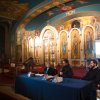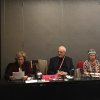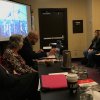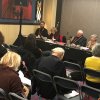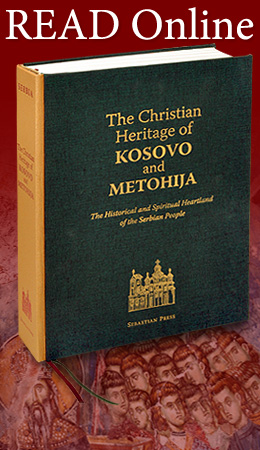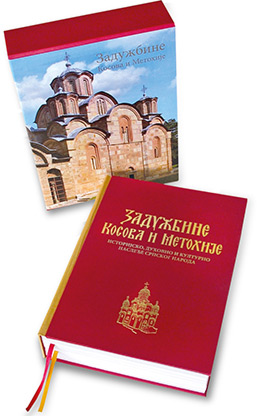His Grace Bishop Maxim of Western America introduced the author and opened the presentation by asking the rhetorical question, “what would America look like without a Serbian presence?” Vidakovic-Petrov’s book, which is based on extensive research and scholarship yet written in a dynamic, readable way, addresses that question by highlighting the various contributions Serbian Americans have made to America and American society since the mid-1800’s. As His Grace pointed out, the book is the result of a tremendous amount of work compiling and analyzing primary and secondary sources that speak of early Serbian immigration to the United States. But this work is presented through the stories of communities and people whose lives have been, at the same time, interwoven with both the society to which they have come as well as the faith and traditions which they brought with them.
Vidakovic-Petrov acknowledged the contributions of Saint Sebastian Press, the need to make this history available to Serbian Americans who cannot speak Serbian, as well as the historical value of ethnic newspapers and media. She briefly mentioned some of the figures who featured prominently in her research, including Djordje Shagic and Nikola Jovanovic, whom the reader can almost visualize as their pursuits are described in the book.
A question and answer session followed the book presentation, and the author signed copies of the book for attendees.
Krinka Vidakovic-Petrov, Sasa Petrov, Predrag Petrovic, Bishop Maxim, and other scholars were in Chicago that weekend in order to take part in the 49th Annual Convention of the ASEEES (Association for Slavic, East European, and Eurasian Studies), held at the Chicago Marriott Downtown Magnificent Mile Hotel on November 9-12, 2017. They spoke at panel/roundtable entitled “Twentieth Century Serbian Writers in the USA.”
Established in 1948, the Association for Slavic, East European, and Eurasian Studies (ASEEES)—a nonprofit, non-political, scholarly society—is the leading international organization dedicated to the advancement of knowledge about Central Asia, the Caucasus, Russia, and Eastern Europe in regional and global contexts.
Nenad Djordjevic

